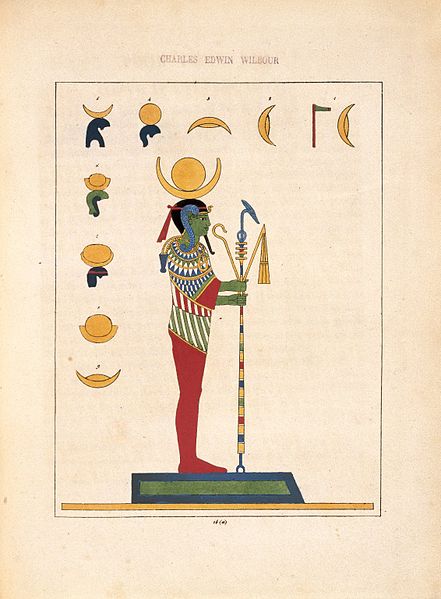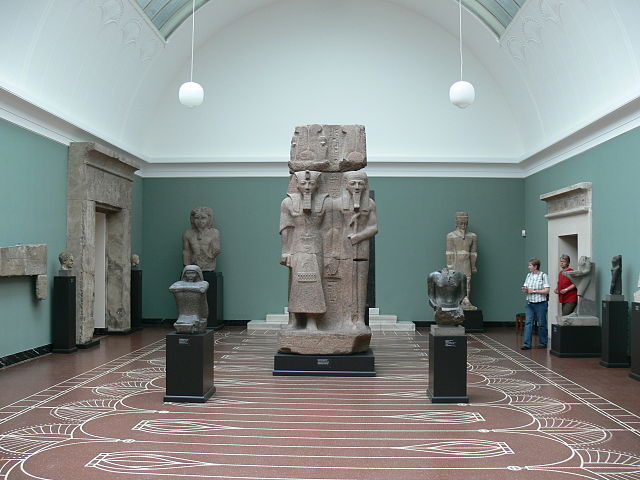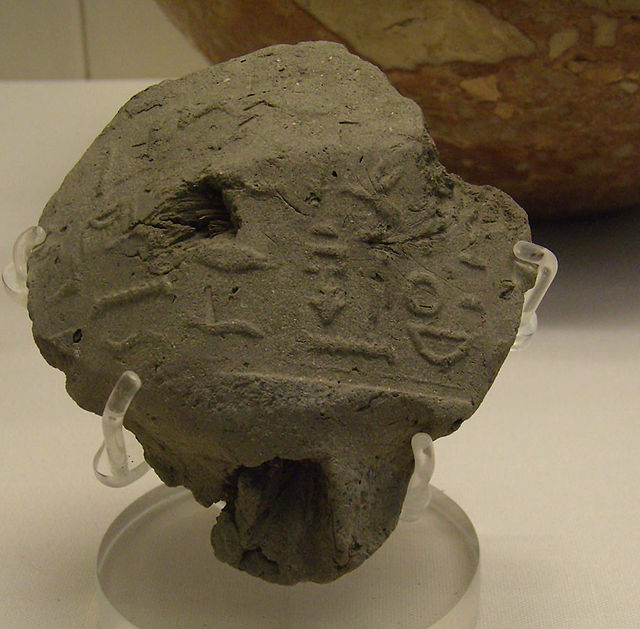Ptah is an ancient Egyptian deity, a creator god and patron deity of craftsmen and architects. In the triad of Memphis, he is the husband of Sekhmet and the father of Nefertem. He was also regarded as the father of the sage Imhotep.
Statue of Ptah - Egyptian Museum of Turin, Italy
Stucco relief of Ptah holding a staff that bears the combined ankh and djed symbols, Late Period or Ptolemaic Dynasty, 4th to 3rd century BC
Pooh, Phoh, Loh (Lunus, le dieu-Lune, Sélène), N372.2, Brooklyn Museum
Colossal statue of the god Ptah-Tatenen holding hands with Ramesses II found at Memphis – Ny Carlsberg Glyptotek, Copenhagen
The Egyptian language or Ancient Egyptian is an extinct branch of the Afro-Asiatic languages that was spoken in ancient Egypt. It is known today from a large corpus of surviving texts, which were made accessible to the modern world following the decipherment of the ancient Egyptian scripts in the early 19th century. Egyptian is one of the earliest known written languages, first recorded in the hieroglyphic script in the late 4th millennium BC. It is also the longest-attested human language, with a written record spanning over 4,000 years. Its classical form is known as "Middle Egyptian." This was the vernacular of the Middle Kingdom of Egypt, and it remained the literary language of Egypt until the Roman period. By the time of classical antiquity, the spoken language had evolved into Demotic, and by the Roman era it had diversified into the Coptic dialects. These were eventually supplanted by Arabic after the Muslim conquest of Egypt, although Bohairic Coptic remains in use as the liturgical language of the Coptic Church.

Ebers Papyrus detailing treatment of asthma
Seal impression from the tomb of Seth-Peribsen, containing the oldest known complete sentence in Egyptian
10th century stela with Coptic inscription, in the Louvre







